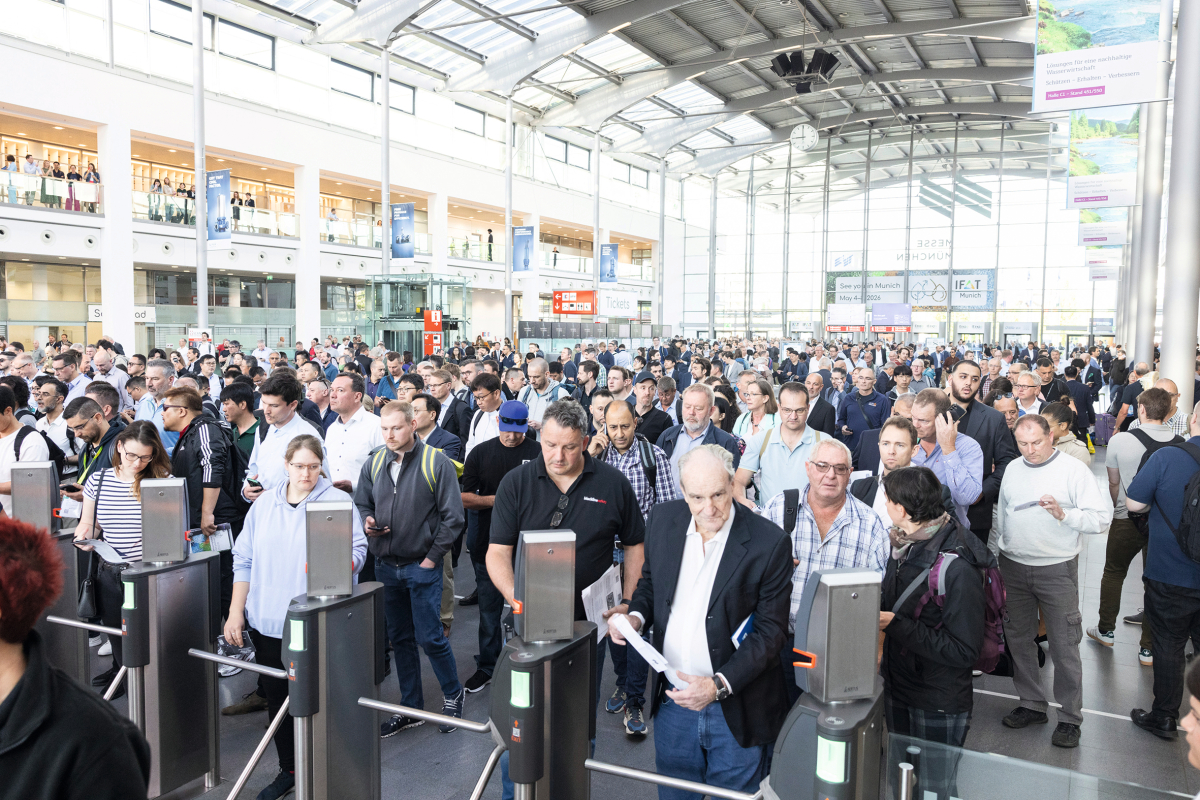Solutions for safety and competitiveness: IFAT Munich 2026 is shaping change
03.11.2025Scarce resources, geopolitical tensions, fragile supply chains and climate change: More than ever before, the current challenges are weaving supply security, ecological resilience and economic competitiveness into a dense web. Basically, closing material cycles not only strengthens economic growth but also the political ability to act. Consequently, the circular economy has long since ceased to be an option and become a necessity instead. And yet it remains only part of the solution: Sustainable infrastructures are only created through the interaction of many technologies and strategies – from efficient water and wastewater management to digital tools and cross-sector collaboration. IFAT Munich brings together all these topics and will show how sustainable transformation can be an overall success from May 4 to 7, 2026.
 IFAT Munich offers “Solutions for Water, Recycling and Circularity”
IFAT Munich offers “Solutions for Water, Recycling and Circularity”
© Messe München GmbH
60 years of “Solutions for Water, Recycling and Circularity”
The world’s leading trade fair for environmental technologies has been accompanying and shaping technological developments, political strategies and economic innovations for 60 years. The figures are impressive proof that it is more relevant today than ever before. Five months before the start of the trade fair, the number of registrations is already up 10 percent. Well over 3000 exhibitors from over 60 countries are expected. “An exhibition area of around 300 000 m² – 18 exhibition halls and large parts of the outdoor area – reflects the continued strong momentum in the industry,” says Exhibition Director Philipp Eisenmann. “We are also pleased with the growing interest from politics, science and business. In a time of economic stagnation, environmental technologies continue to grow and make a significant contribution to Germany as a business location and to Europe’s future viability.”
“The transformation to a circular and resource-efficient economy is no longer a project for the future, but a prerequisite for stability, raw material resilience, growth and competitiveness,” adds Dr. Johannes F. Kirchhoff, Chairman of the Advisory Board of IFAT Munich. “IFAT Munich 2026 shows how this change can be achieved in practice – solution-oriented, across sectors and globally networked.”
Attractive event program for knowledge transfer and exchange
In 2026, IFAT Munich will once again offer an attractive program. The Blue Stage will highlight issues relating to water resources, water reuse, sewer maintenance and climate-resilient infrastructure. The Orange Stage will focus on circular economy and resource efficiency, material flow management, logistics, and mobility and technology in municipal and waste management. The Green Stage will provide space for exhibitors to present specific products, solutions and innovations and explain them in a direct exchange. The program will be complemented by solution tours, spotlight areas, cross-industry sessions, and live demonstrations and competitions. The Startup Area will put the spotlight on innovative ideas for the future and cooperation models.

